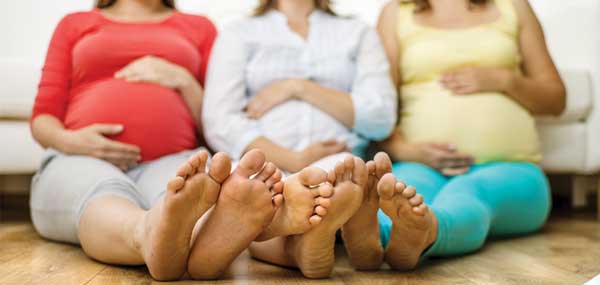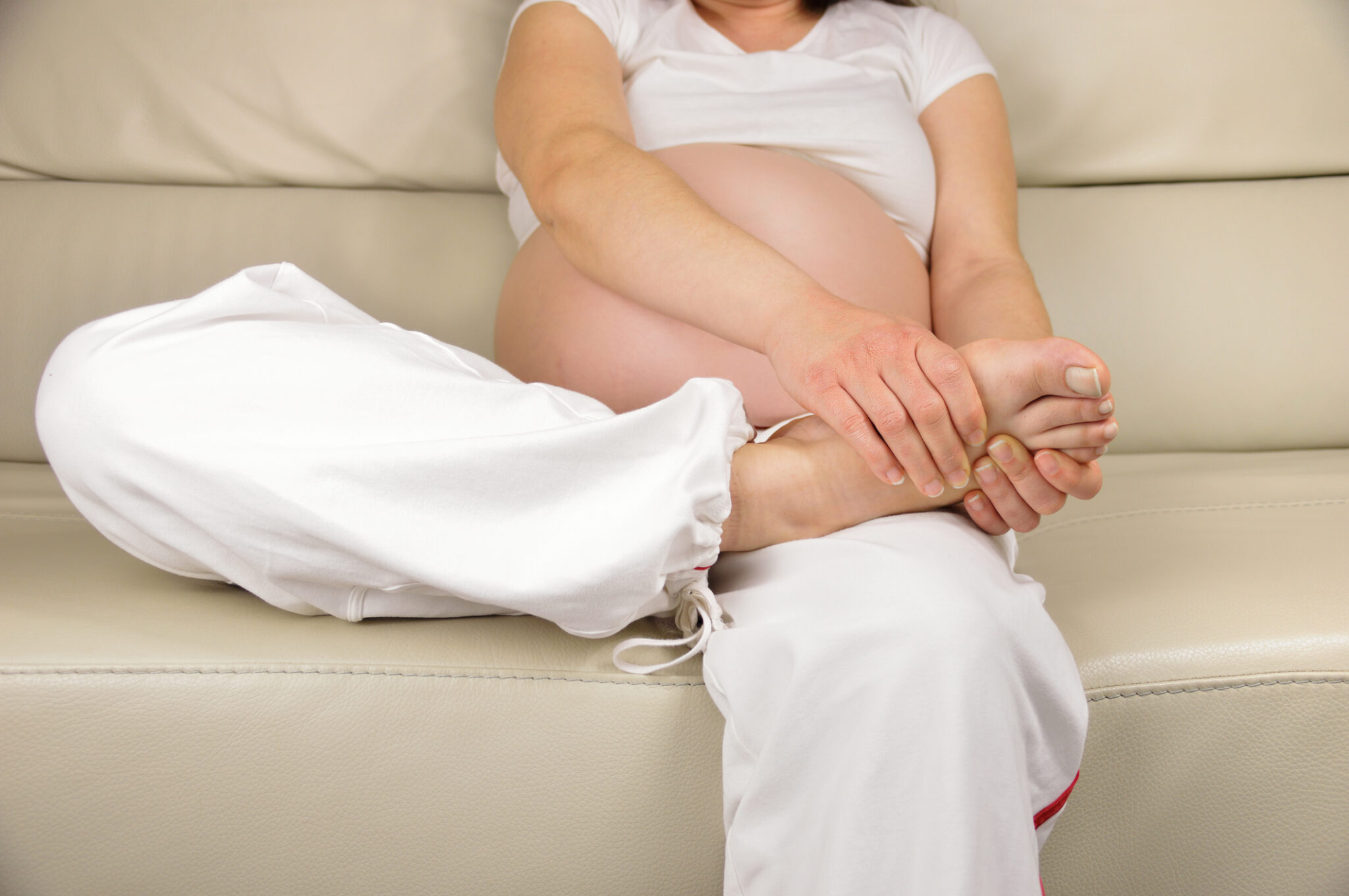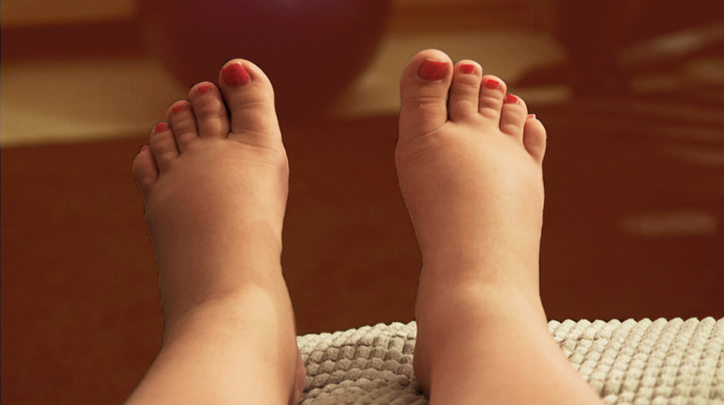Are you Pregnant and experiencing Foot Pain?
Foot pain during pregnancy

Pregnancy brings about many physical changes, and while most women expect symptoms such as morning sickness or back pain, foot pain is often overlooked. However, as your body adapts to carrying extra weight and hormonal shifts occur, your feet undergo significant changes, leading to discomfort and potential complications.
We want you to enjoy pregnancy; if you have any foot, knee or leg pain, please get in touch.
Why do feet hurt during pregnancy?
One of the key reasons foot pain is common in pregnancy is due to natural weight gain, which shifts a woman's center of gravity. This places increased strain on the lower back, hips, knees, ankles, and feet. In addition, pregnancy hormones—especially relaxin—cause ligaments to become more flexible and loose, which can lead to instability in the foot joints.
As a result, pregnant women may develop overpronation (flat feet), heel pain, and swelling (oedema), all of which can cause significant discomfort, particularly in the later stages of pregnancy.

Common Foot Problems During Pregnancy
1. Overpronation (Flat Feet) & heel pain
Overpronation occurs when the arches of the feet collapse, leading to excessive inward rolling of the feet while walking. It can strain the plantar fascia, a band of tissue that supports the arch, leading to heel pain and inflammation—a condition known as plantar fasciitis.
Symptoms:
- Pain in the heels, arches, or balls of the feet
- Increased discomfort with prolonged standing or walking
- Tired, aching feet
Management & Treatment:
- Wear supportive footwear with good arch support and cushioning.
- Custom orthotics may be needed for severe cases to provide proper foot alignment.
- Stretch the calves and arches regularly to prevent tightness.
- Limit walking barefoot, especially on hard surfaces, as this can worsen symptoms.
2. Oedema (Swelling of the Feet & Ankles)
Swelling in the feet and ankles is common during pregnancy, particularly in the third trimester. Occuring due to fluid retention and increased pressure on blood vessels, which slows circulation. While mild swelling is expected, sudden or severe swelling in one foot may indicate a more serious issue, such as deep vein thrombosis (DVT), and should be checked by a doctor immediately.
Symptoms:
- Puffiness in the feet, ankles, and lower legs
- Tightness in shoes or difficulty fitting into regular footwear
- Increased discomfort with standing or heat exposure
Tips to Reduce Swelling:
✔ Elevate your feet as often as possible to encourage fluid drainage.
✔ Stay active—gentle exercise like walking can help improve circulation.
✔ Avoid tight-fitting socks and hosiery that restrict blood flow.
✔ Wear comfortable, well-fitted shoes that allow room for swelling.
✔ Drink plenty of water to flush out excess sodium and reduce fluid retention.
✔ Take breaks from long periods of sitting or standing—stretching your legs frequently can help.
✔ Follow a healthy, low-sodium diet to prevent excessive water retention—consult a dietitian if needed.


Due to natural weight gain during pregnancy, a womens centre of gravity will alter, which places increased pressure on the joints in the lower back, legs, ankles and feet.
The body also naturally releases hormones that relax ligaments, which means the ligaments that support the joints in your feet and legs become more mobile, leading to excessive strain on the joints, ligaments and tendons.
Two of the most common foot problems experienced by pregnant women are Heel Pain and (Oedema) swelling of the feet. These problems can lead to pain in many areas, especially in the heels, and can be made worse with increased standing and walking.
Treatment and Advice:
Over Pronation (Flat Feet) and Heel Pain can be treated conservately by wearing supportive footwear; however, some women will require custom-made arch supports (orthotics), so the bones of the feet are supported and aligned correctly.
Oedema (Swelling) in the feet occurs typically in the latter stages of pregnancy. When feet are swollen, they will become painful and also challenging to fit in your usual footwear. Swelling occurs in both feet, so if there is any swelling in one foot, you should immediately contact your doctor.
Below are some helpful tips to reduce swelling:
- Elevate your feet as often as possible to help reduce swelling.
- Have your feet measured several times throughout your pregnancy, as the size of your foot will probably change. Therefore, you'll need to change your footwear.
- Avoid poor-fitting socks and hosiery that could constrict circulation.
- If you're driving for long periods, take regular breaks to stretch your legs. Stretcing is a great way to promote circulation.
- Excersize reguarly to promote overall health; walking is one of the best excersizes. If your feet become painful, you may need arch supports fitted.
- Drink plenty of water to keep the body hydrated and eat a well balanced diet low in salt to reduce water retention. It may be advisable to see a Dietician.
- Make sure you stay in close contact with your health team throughout your pregnancy because they are there to help and offer advice wherever possible.


